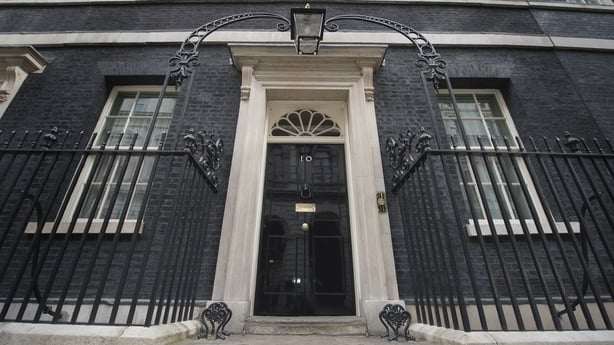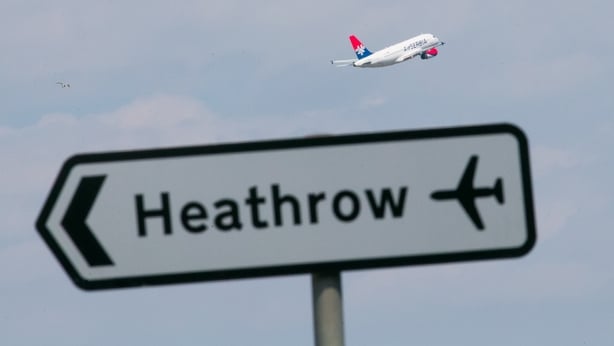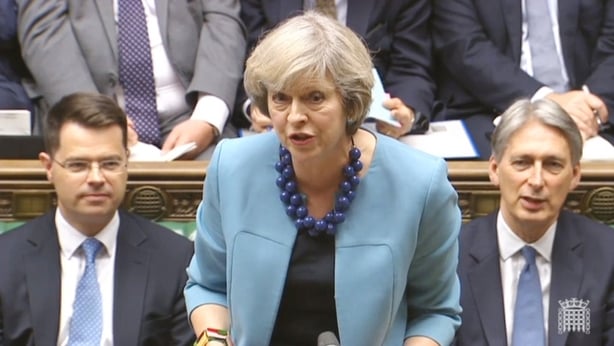Had you been standing near Downing Street this week, it’s possible you might have heard a sigh of relief when Japanese car manufacturer Nissan announced it would be producing its new vehicle at its Sunderland plant.
The decision has hung over the plant - and the 30,000 jobs there - like a sword of Damocles.
The Nissan Chief Executive said last month he couldn’t guarantee the investment unless the British government assured the company it would not be adversely affected by any new post-Brexit trade tariffs.
That the good news came just hours after better-than-expected GDP figures should only have cheered Theresa May’s Halloween break even further.
But within hours of the Nissan announcement, Downing Street was denying there was any deal made to protect the company from any hardships that Brexit might bring.
No sweetheart deal had been done, the government said. But other car manufacturers are likely to take more convincing than that.

They want what they think Nissan got, so the questions are unlikely to stop anytime soon.
It’s been a bruising couple of weeks for the British Prime Minister: A less-than-rapturous reception at her first EU summit, numerous leaks from her own Cabinet, continued dissent between the Remain and Leave sides within the Conservative Party. And that’s just Brexit.
The ‘B’ word looms large, but there also remains a raft of domestic issues to be tackled.
While some are influenced by the decision to leave the EU, they would by themselves bring their fair share of political discomfort. One such decision is the expansion of London’s airport capacity.
As the UK prepares to negotiate new international trade deals, it needs the capacity to deal with increased trade, not to mention showing it has an outward looking view on the world.
This week Ms May announced Heathrow would be expanded.
A row over the expansion of Heathrow has been handed from one politician to the other for years now.
Each seems to have done so in the vain hope that whoever gets it next will have figured out how to develop the airport without raising the ire of the many voters, environmental groups and MPs who vehemently oppose the idea.
The immediate result of this week’s announcement was the resignation of one Tory MP in protest.

So aware was Ms May of the pressure under which it would put some of her Cabinet colleagues that she suspended collective responsibility, allowing them to vent their disagreement in public at the decision.
Boris Johnson wasted no time in doing so, calling the expansion ‘undeliverable’.
His constituents do not want the air and noise pollution issues they fear will come with a new runway.
A mire of court challenges and objections now lies ahead.
There are also objections aplenty with ongoing controversies surrounding the vast Child Abuse Inquiry established by Ms May when she was home secretary.
The Prime Minister was responsible for appointing the first, second and third Chairpersons for the Inquiry.
The fourth has been appointed in recent months. The fact the inquiry has already worn though so many chairpersons gives just a hint of the many stumbling blocks it has already faced.
As the central force in its establishment, any failure to deliver on its promised lands squarely at Ms May’s feet.

The scope of the inquiry – dealing with sexual abuse in organisations as diverse as the Army, the BBC and the government – looks to be fast becoming unwieldy and unmanageable.
Examining over 200 organisations and spanning decades, the Inquiry Chairperson says she hopes it will be mostly completed by 2020.
In the meantime, questions continue about the ability of the Inquiry to deliver on its pledge to identify institutional failings in the protection of children.
Brexit, Heathrow, the Independent Inquiry into Child Abuse, any other business – there is a full agenda ahead for Ms May with considerable turbulence forecast.




